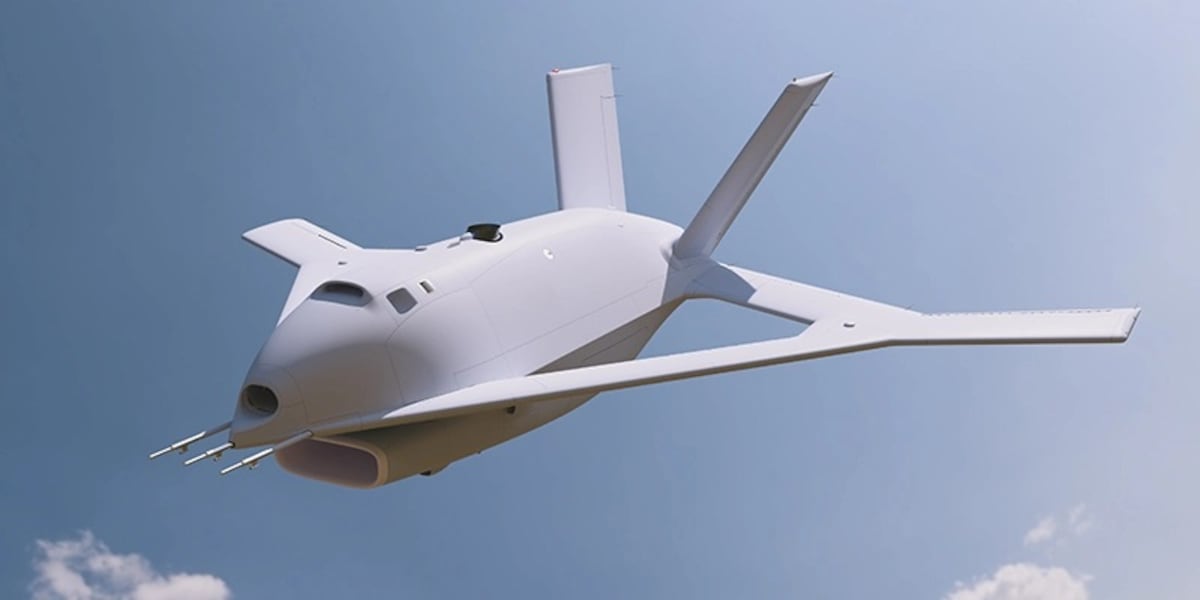The head of the Defense Innovation Unit, a champion of acquisition reform who was instrumental in the Pentagon’s push to rapidly build and deploy new technology, resigned Friday due to political pressure, according to Defense Department sources.
Doug Beck served as principal staff assistant to the defense secretary, reporting directly to Defense Secretary Pete Hegseth. But Pentagon officials had raised concerns about Beck’s political donations to Democrats, Reuters reported. And defense officials told Defense One that because Beck was appointed during the Biden administration, it was widely thought that he would eventually be asked to resign.
DIU declined to comment on the story and Beck could not be reached. However, one defense official said he had hoped to continue in his role and is working to ensure the transition to a new leader is seamless.
The under secretary of defense for research and engineering, Emil Michael, will serve as acting director of DIU, with Michael Dodd as acting deputy director, the Defense Department has confirmed. However, DIU will remain independent from the RDT&E office, Michael said Wednesday.
In 2015, then-Defense Secretary Ash Carter stood up what was then called the Defense Innovation Unit Experimental (DIUx) to allow the Pentagon to access emerging commercial technology more quickly.
Beck’s legacy
Beck’s resignation was less acrimonious and less surprising than other recent Pentagon leadership changes. However, it is unique in that Beck’s efforts have received broad endorsement from both Republican lawmakers and Hegseth.
A March memo from the Defense Secretary’s office essentially directed a scaling of DIU’s practices: removing barriers and contract restrictions so the services and the combatant commands can purchase new technology through streamlined contracts. The memo also gave DIU a central role in execution, directing the under secretary of defense for acquisition “in coordination with the Director of the Defense Innovation Unit” to produce an implementation plan.
In July, Hegseth doubled down with a second memo, “delegating authorities to procure and operate drones from the bureaucracy to our warfighters,” giving commanders at the brigade level greater authority to buy new tech based on operational needs. That step, which builds on Beck’s efforts, also garnered wide support.
The steps to remove restrictions on acquisition and empower commanders to buy their own tech were in line with what lawmakers and government watchdogs had urged for years. And one former official said Beck is the reason the changes were finally possible.
Beck’s signature initiative, DIU 3.0, focused the unit on the most critical capability gaps identified by services and combatant commands. He worked to “forge partnerships with the combatant commanders in a way that didn’t exist before—putting the warfighter first,” the former defense official said.
Those partnerships led to programs like Replicator, which was designed to mass-produce large numbers of cheap, highly capable drones, and came directly from the U.S. Indo-Pacific Command wishlist.
“By emphasizing the most important warfighting problems in collaboration with the combatant commands, DIU under Doug Beck increased its ability to accelerate capability delivery that would make a difference on the battlefield,” Michael Horowitz, who served as assistant secretary of defense for force development and emerging capabilities, and director of the Emerging Capabilities Policy Office, told Defense One.
Beck, an Iraq and Afghanistan veteran who came to DIU from Apple, where he was a vice president, worked to build bridges not just between operators and tech firms, but also with the investor community. That community had long been skeptical of defense startups due to the Pentagon’s reliance on large, inflexible programs of record dominated by prime contractors, according to another former official.
For example, if the Army were to launch a new drone program-of-record, there was little incentive for even risk-tolerant investors to fund a startup, since the service generally would award mass production to just one or two large incumbents. The system made new market entrants unattractive, the official said.
“Things get over hyped and then either the department or Congress doesn’t fund them enough. So when these companies go bust and investors tell themselves to stay out of the defense business because ‘that market is crazy and that customer is crazy.’ And everybody loses,” the former official said.
Beck played a significant role in shifting that dynamic. Programs like Replicator and DIU 3.0 opened doors for a much wider range of companies to work with services based on mission-specific needs. That change reassured investors and encouraged new capital flows into the defense sector.
“Now, there’s so much capital, partly because of things DIU has done, but partly because of other reforms at the DOD,” an official said.
That has left the Defense Department better positioned to engage a broader range of companies, and the next head of DIU will be in a position to extend Beck’s reforms across the Pentagon. But that individual won’t succeed without the ability to bridge warfighters, makers, and investors—understanding the needs of each, the official said: “Trying to create balance within that ecosystem is really important. You need people who understand that side of it.”
Read the full article here








Leave a Reply